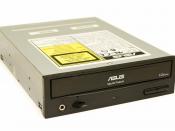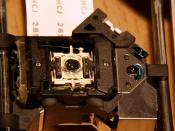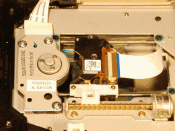The speed of a computer is affected by many factors. In this paper, the role of the RAM, Clock speed, Data on hard disk, Data on CD ROM and Data on floppy disk in determining the speed of a computer will be discussed. The three most important factors is said to be the amount of the data on the hard disc or the CPU (Central Processing Unit), the Clock speed and the RAM.
To start the effect of the RAM is discussed. RAM stands for Random Access Memory, the working memory in a computer. As a computer runs programs and works with data, it uses RAM to store the program information. RAM is measured in megabytes (MB). More RAM allows a computer to run more complex programs and to do so faster. After the processor, RAM is the second biggest factor in overall system speed. When Microsoft Windows runs out of RAM to use for programs, it uses the hard drive as temporary storage for program information.
Because this temporary storage is not "real" memory, it is referred to as virtual memory. While virtual memory keeps the system from crashing, using virtual memory slows the system down, even if you have a fast processor and powerful hard drive. RAM can be described as a desk, the bigger the desk space the more things you can put on it to work with.
On the other hand, the Clock Speed is considered to be the most important factor affecting the overall speed of a computer. In a computer, clock speed refers to the speed at which a microprocessor executes instructions. Every computer contains an internal clock that regulates the rate at which instructions are executed and synchronizes all the various computer components. The CPU requires a fixed number of clock...


